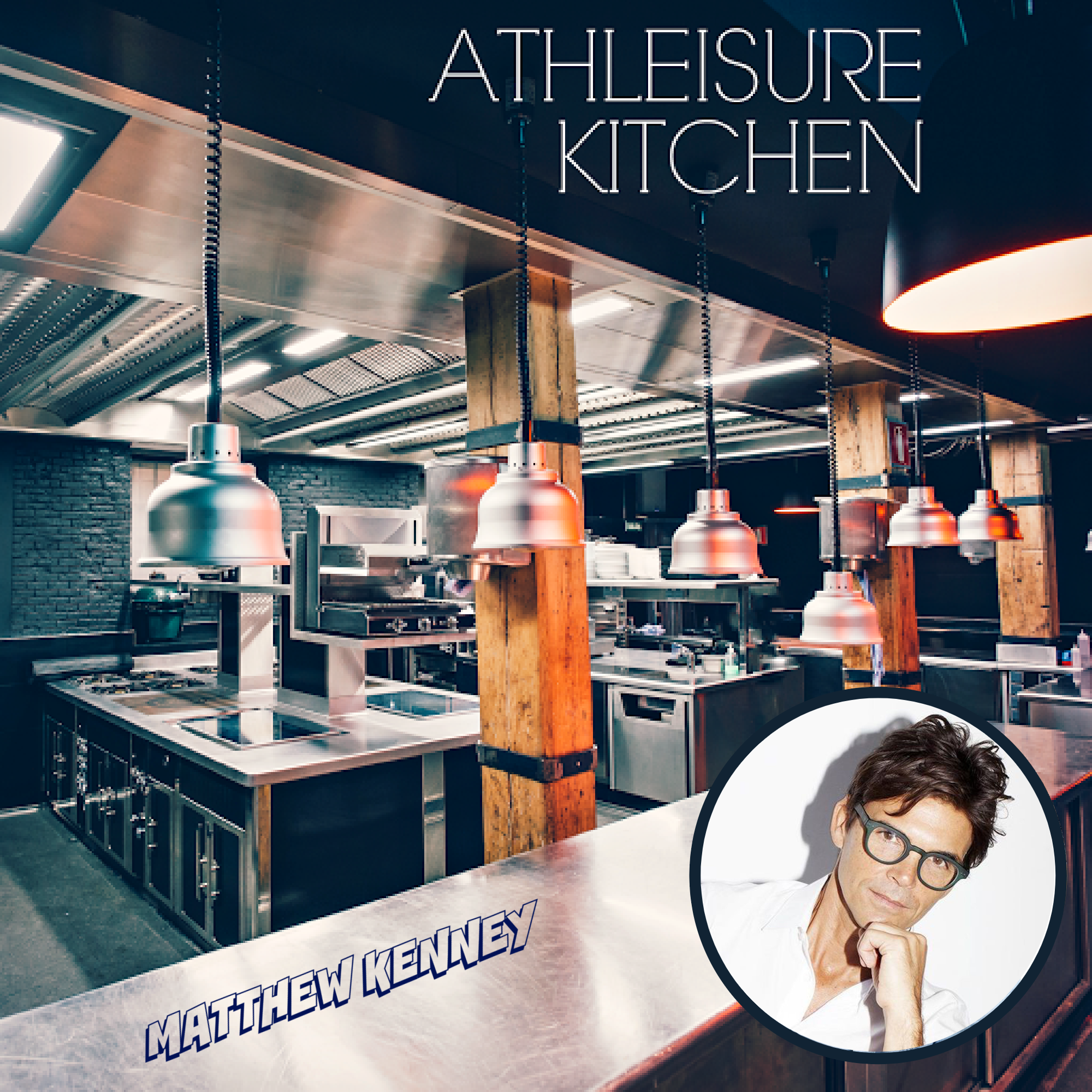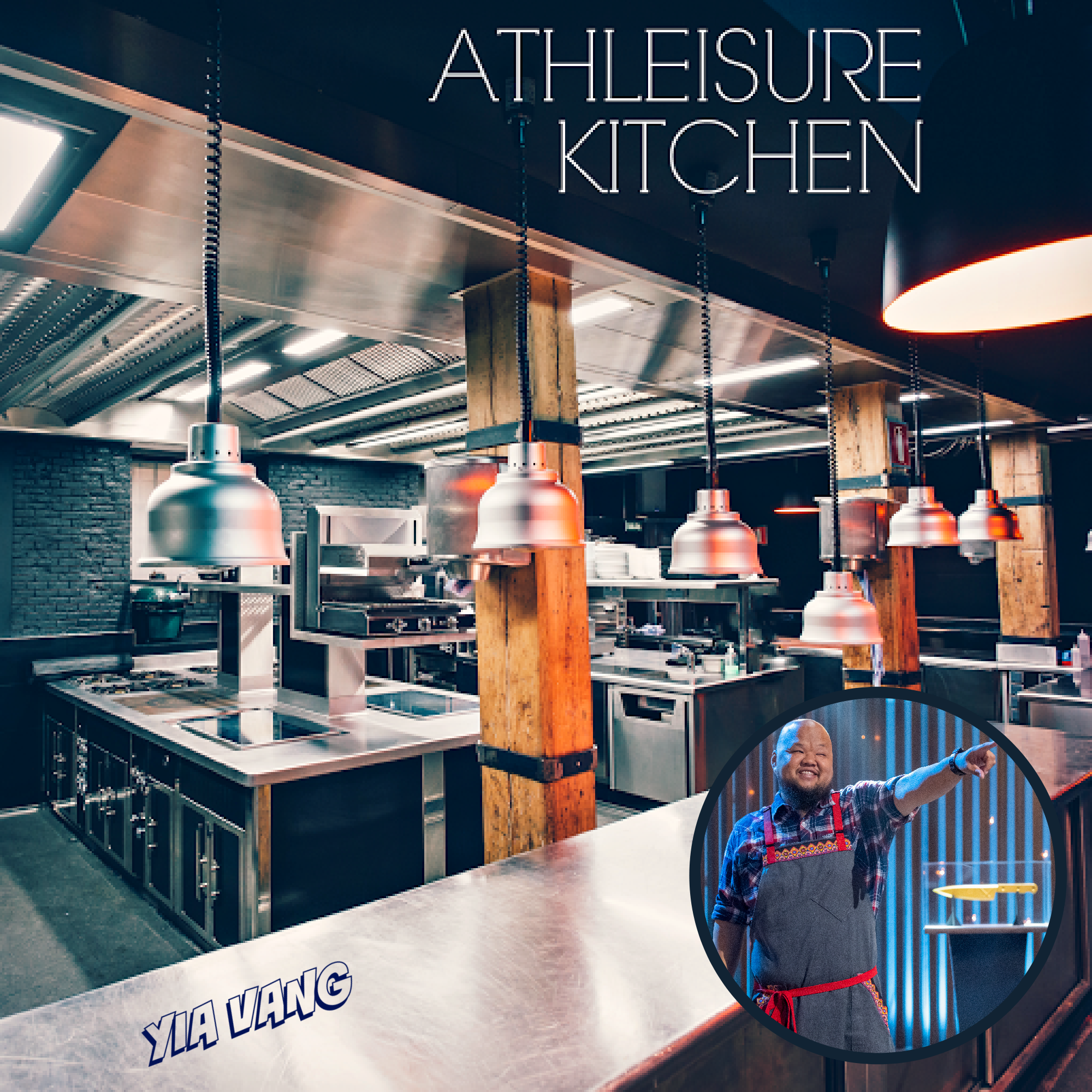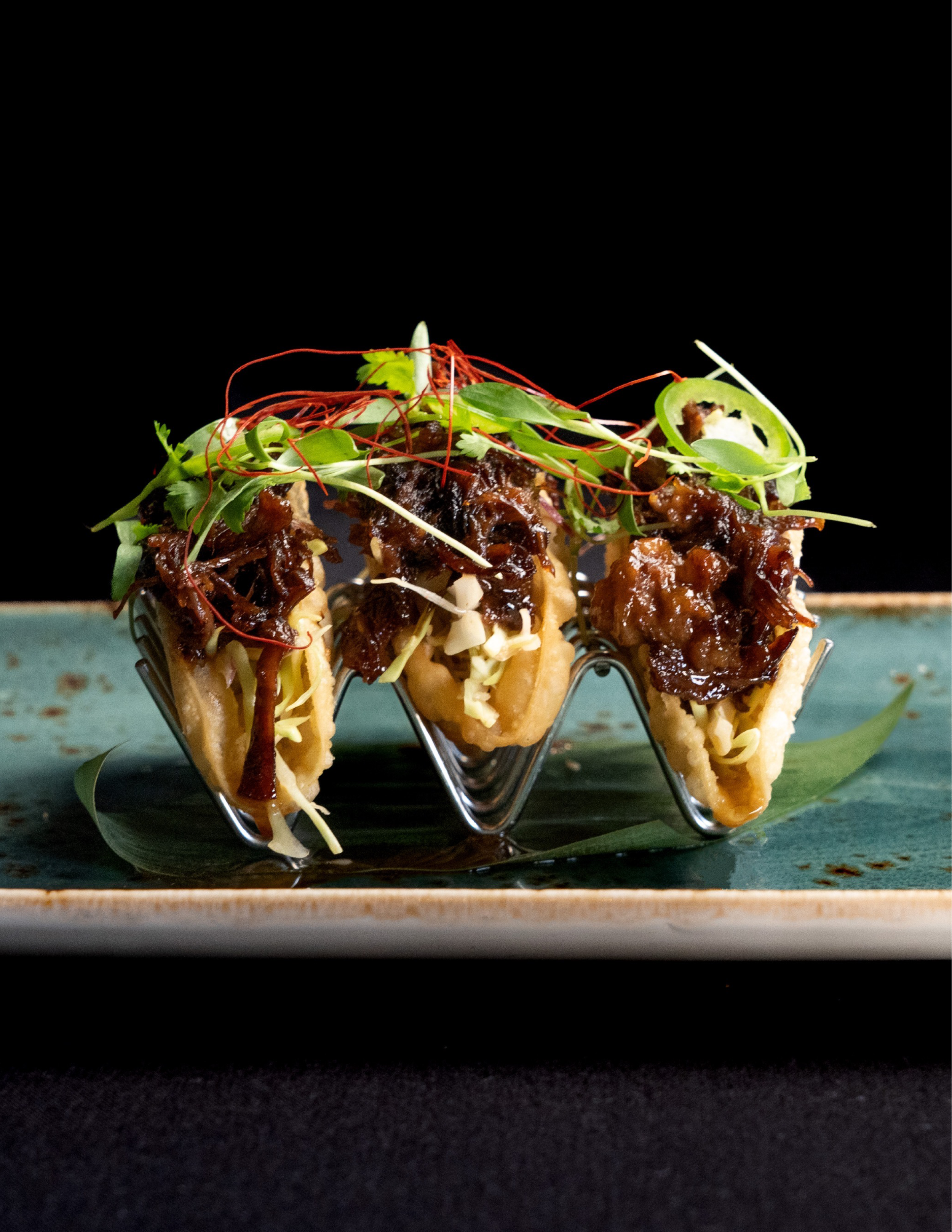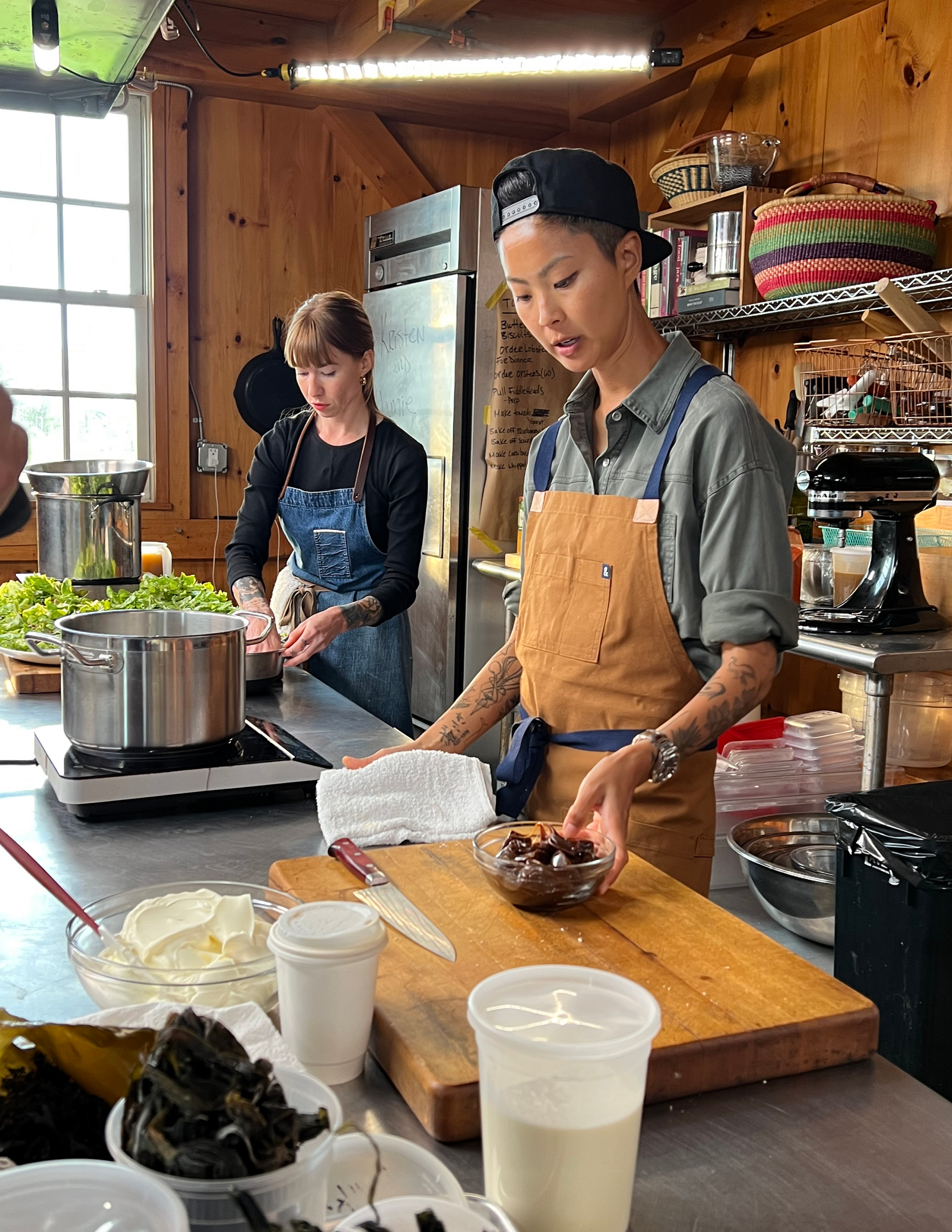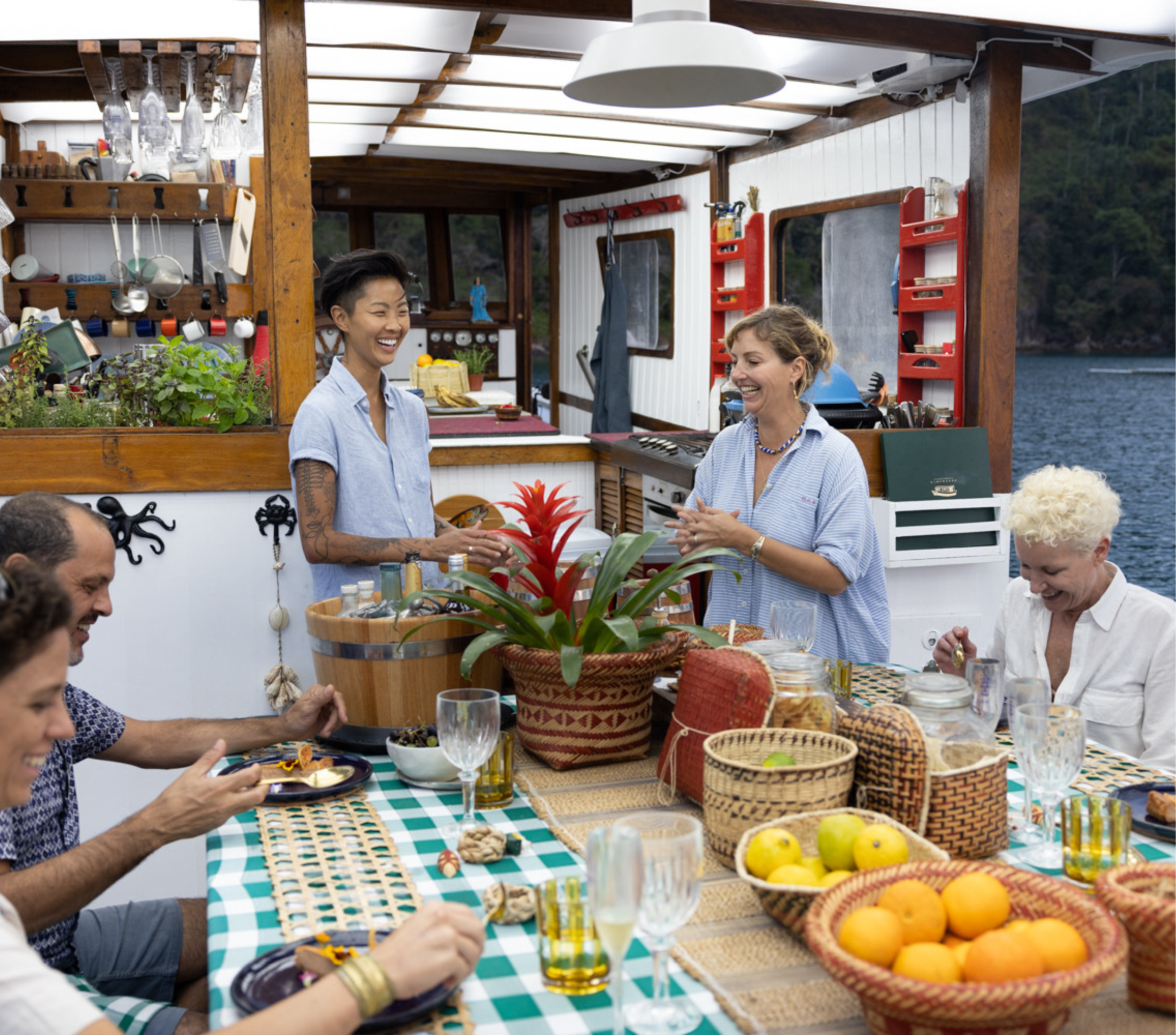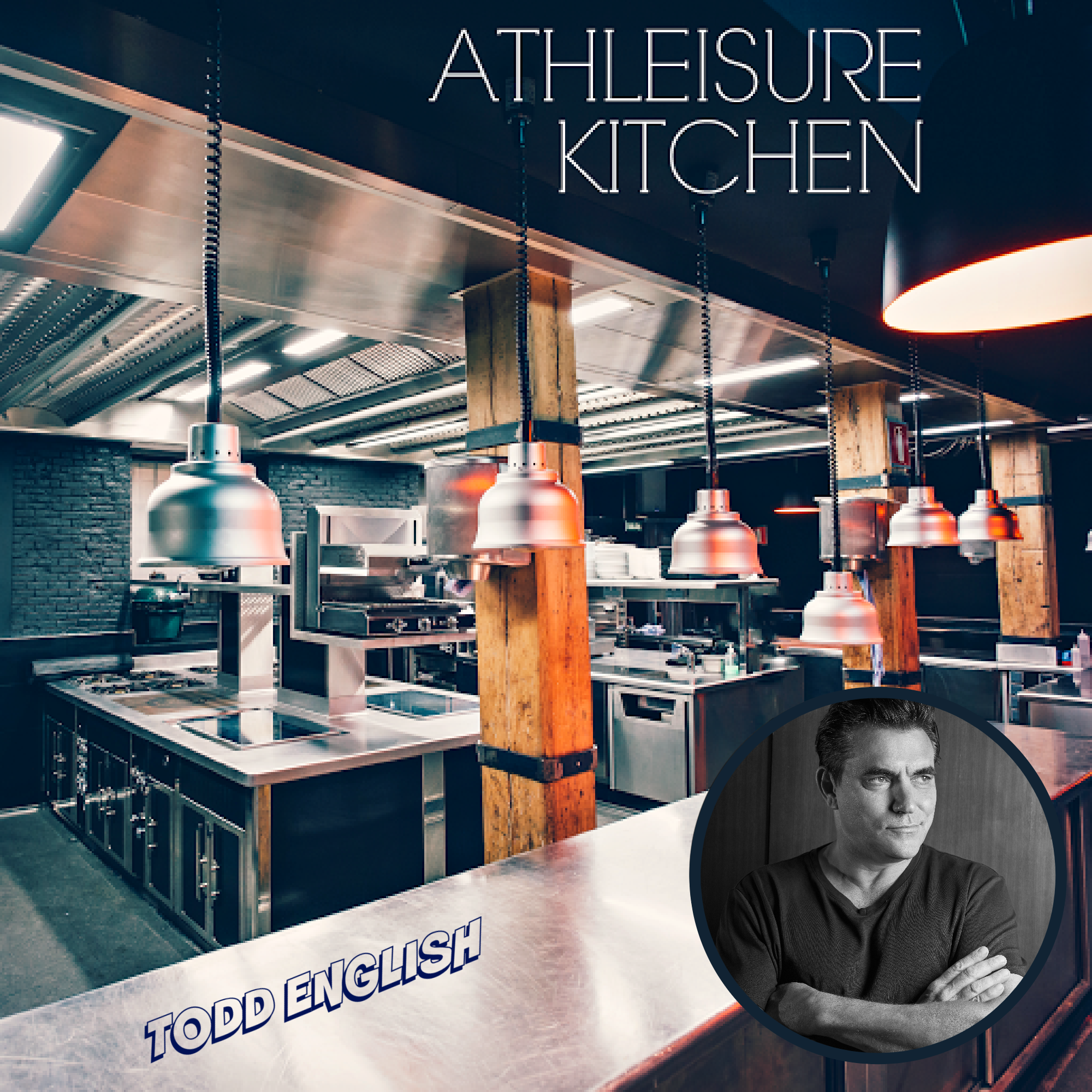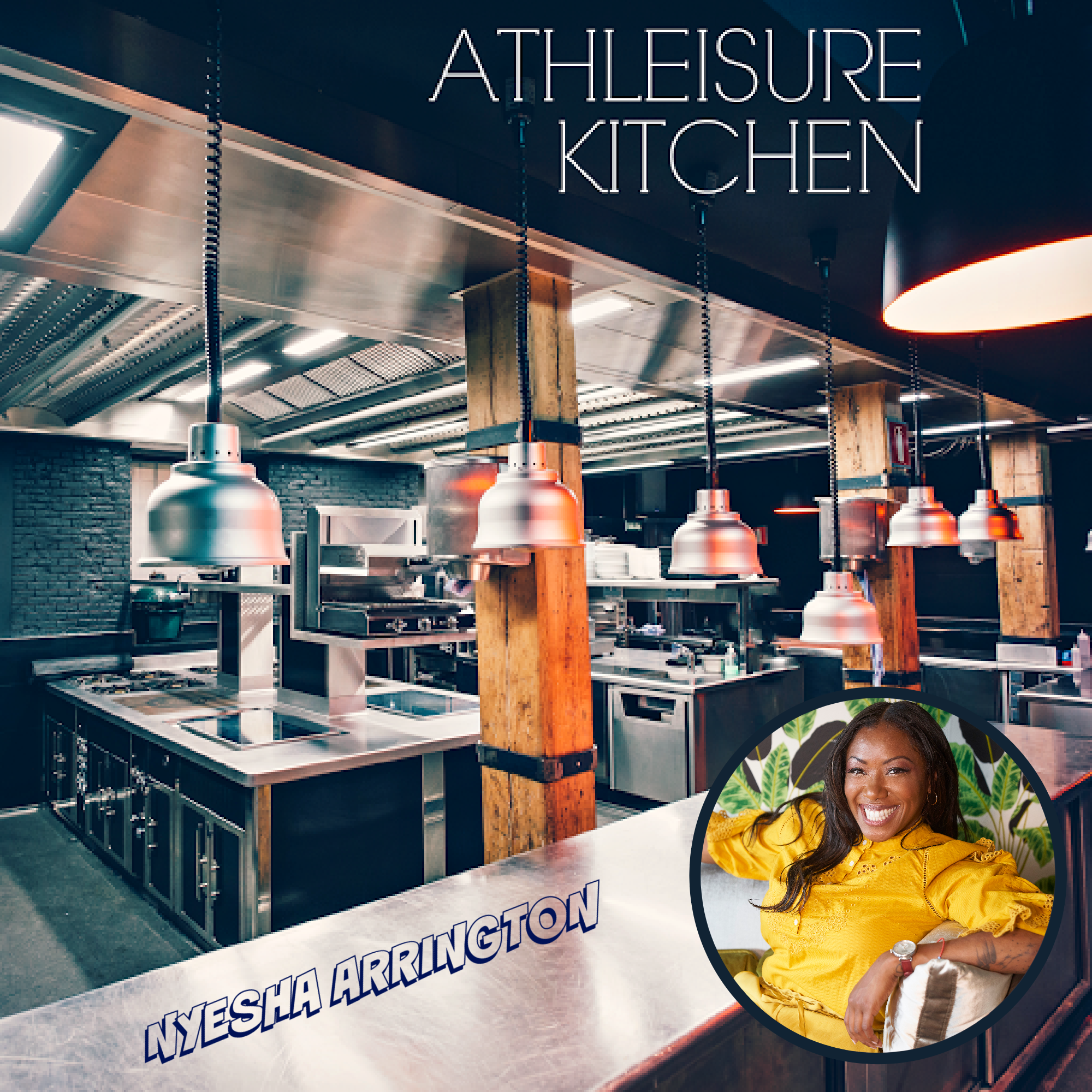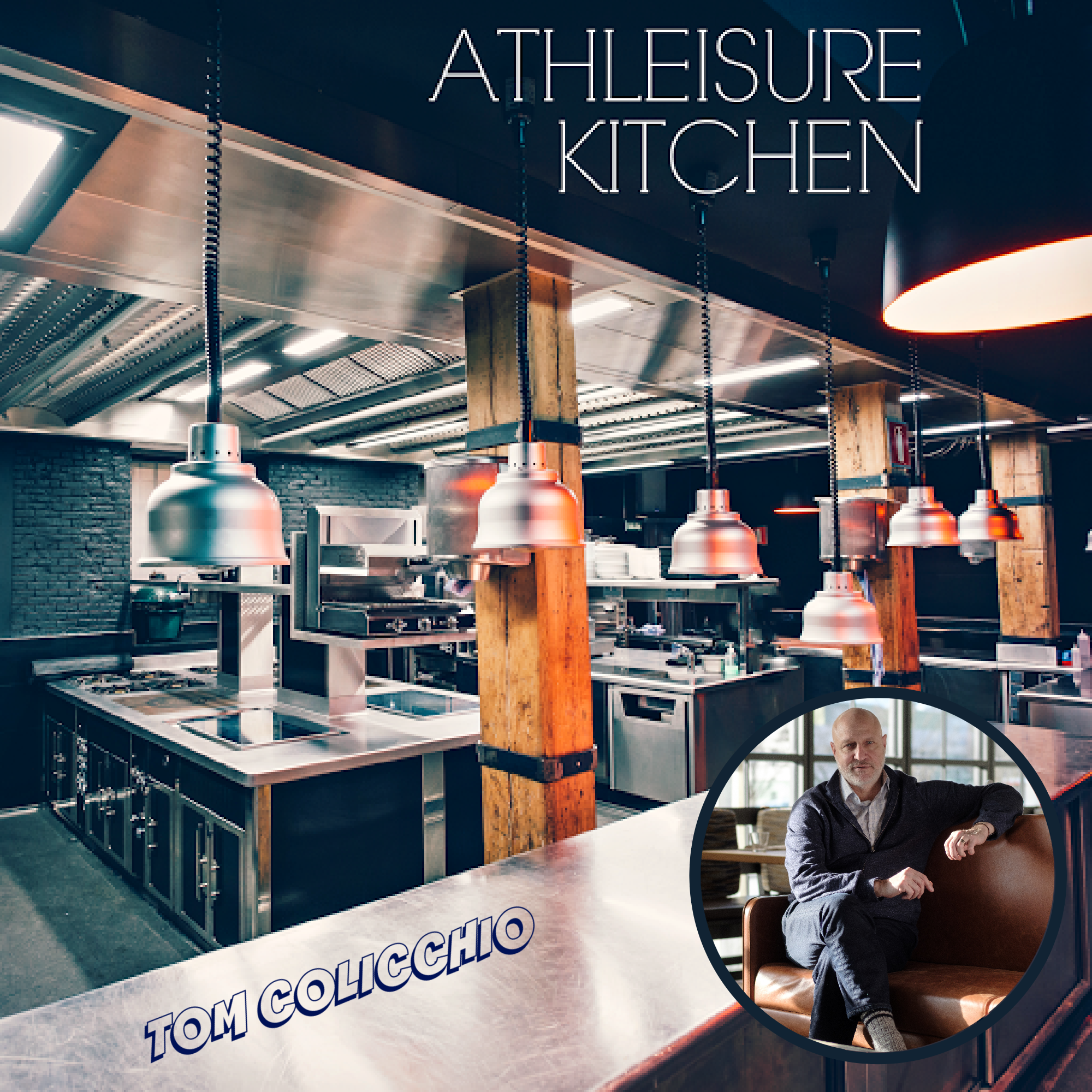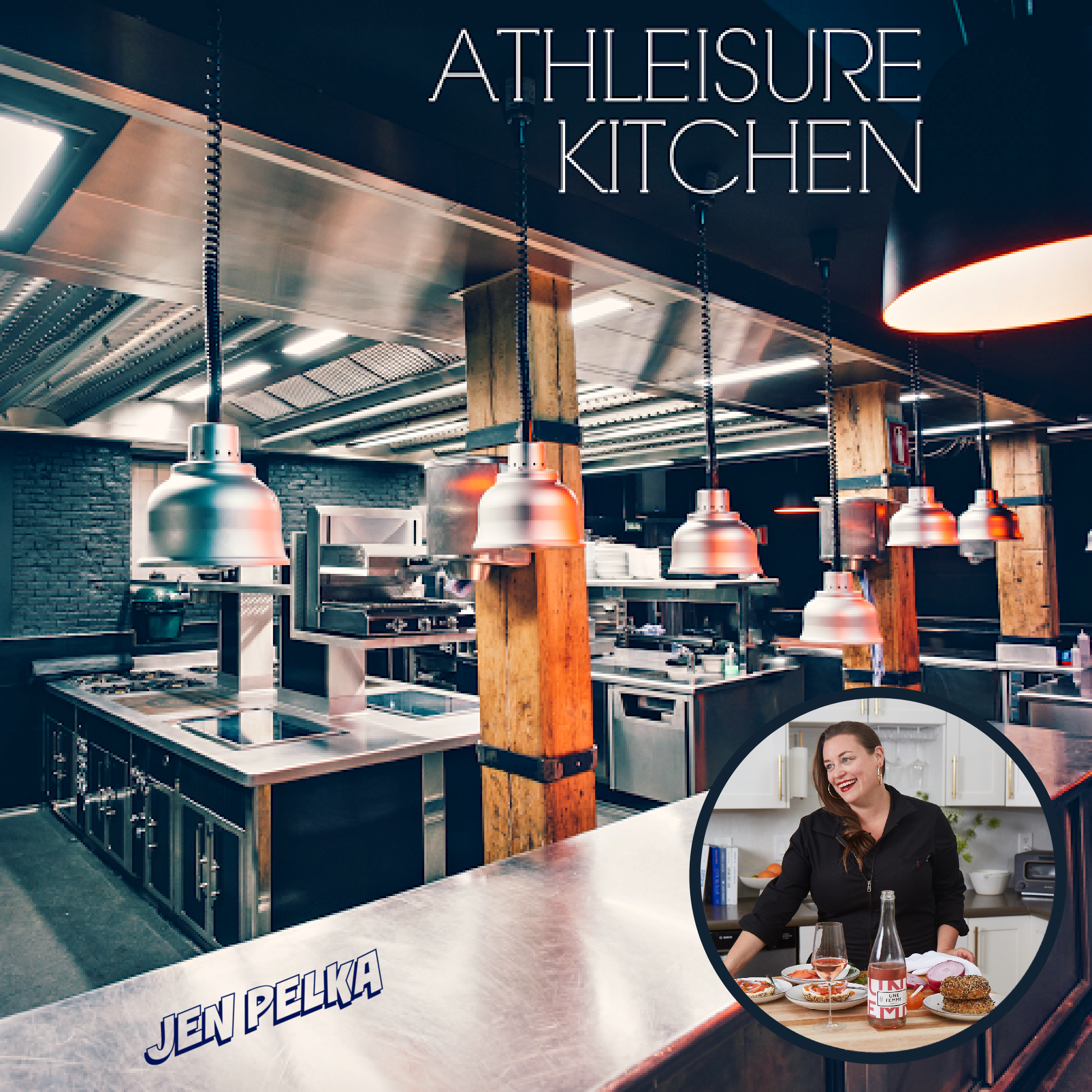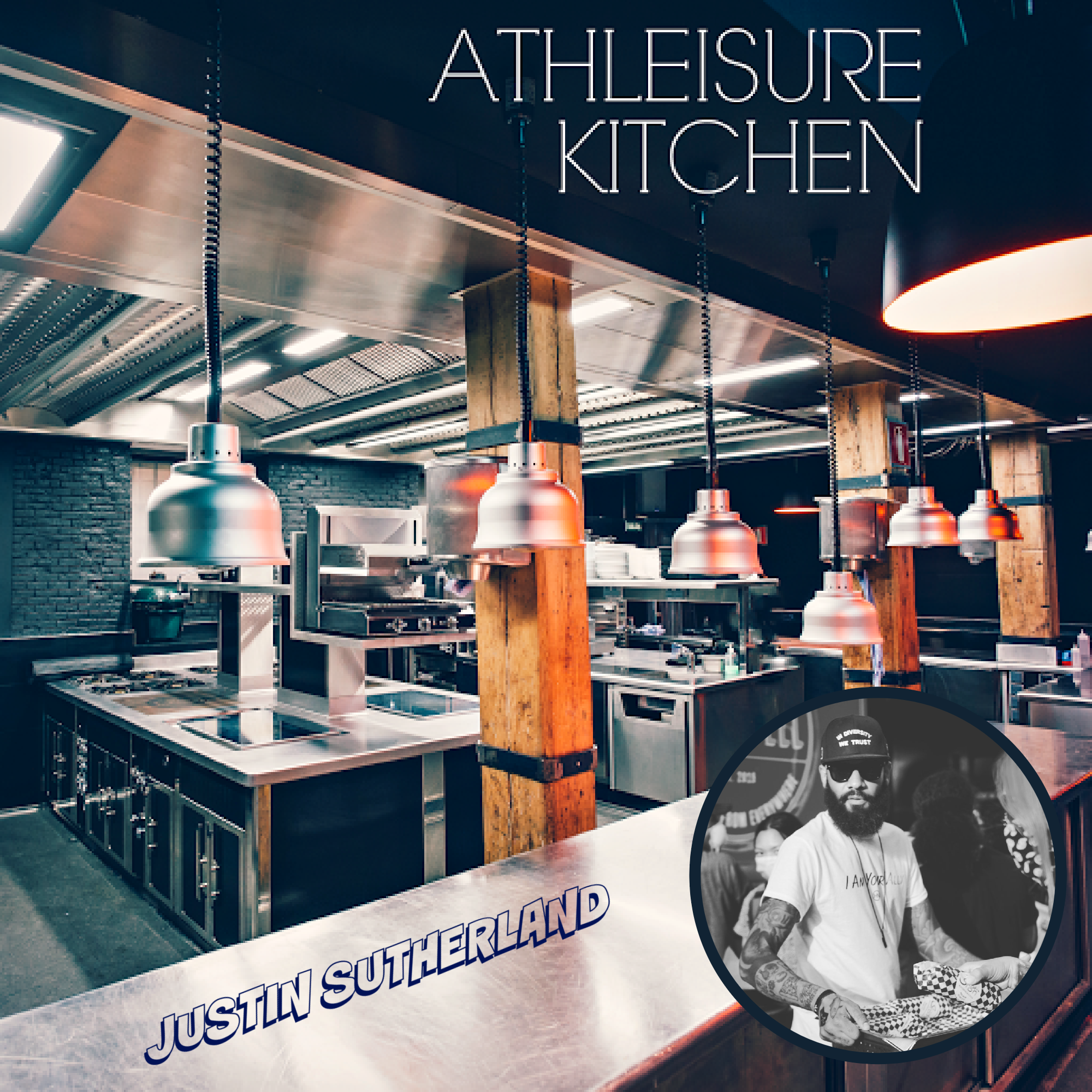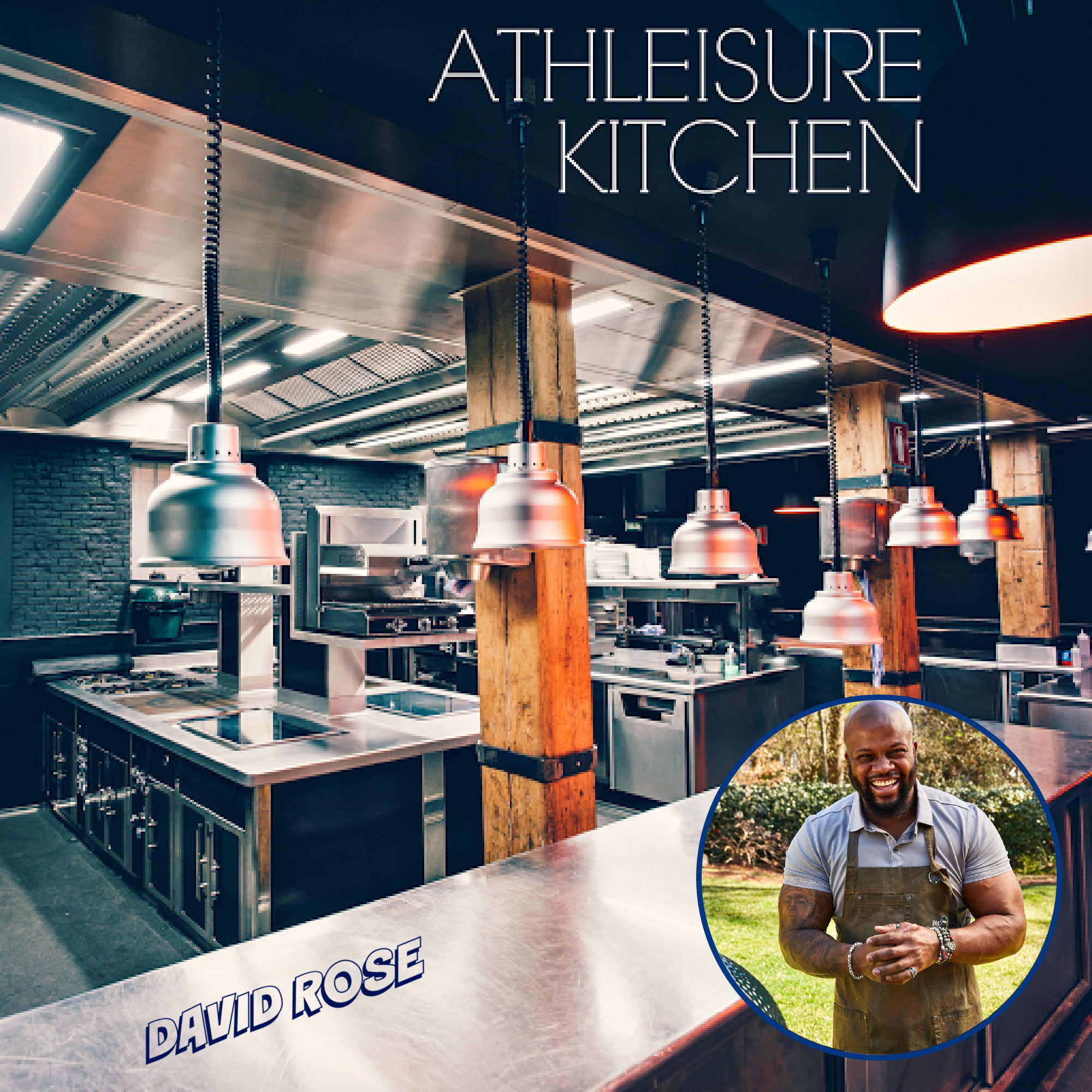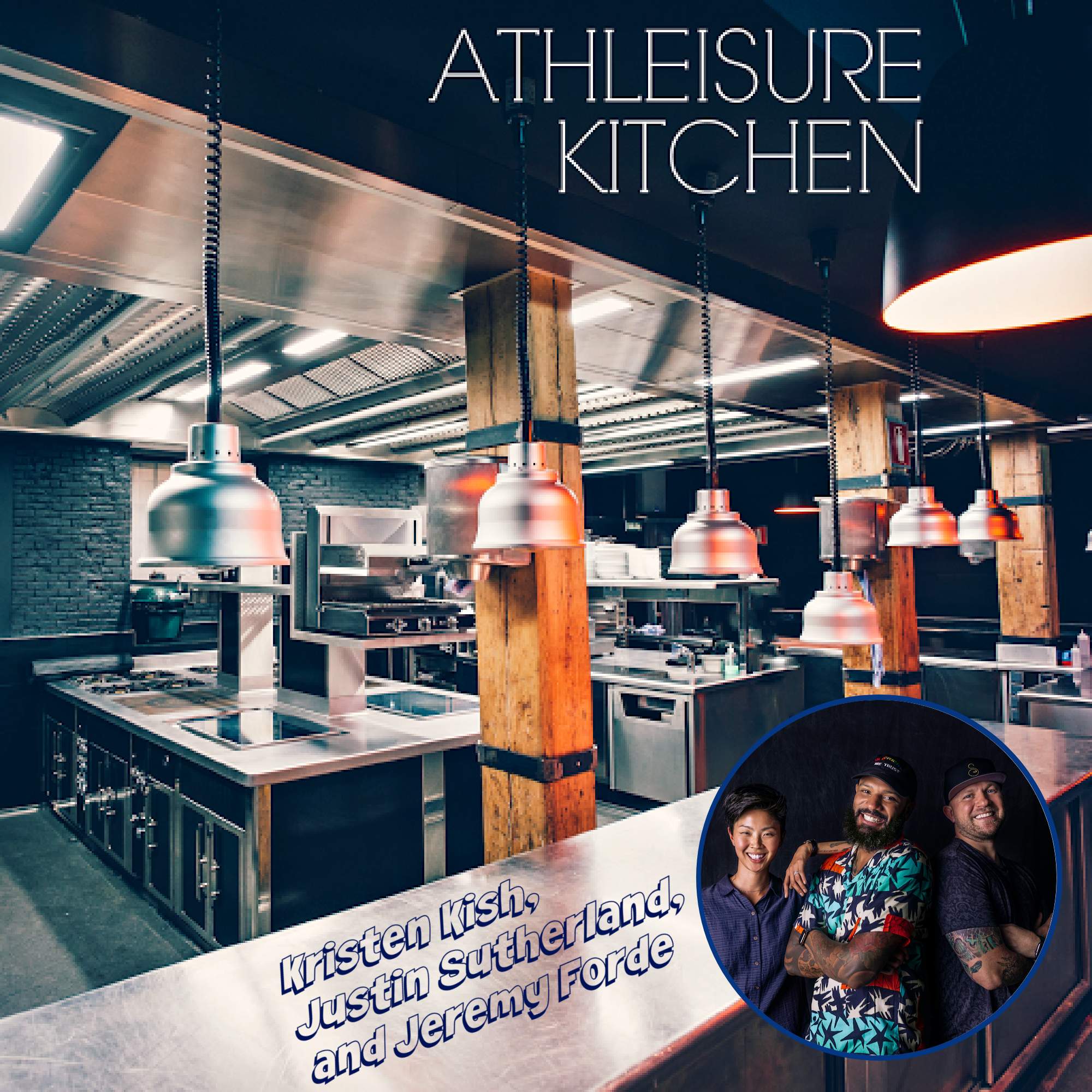AM: Versus now, where everything is so much at your fingertips. This issue marks our 87th, and when we first started, food has always been a big category for us in our coverage, you were always someone we'd love from the beginning to have share your story. So to be chatting with you now 7 years later with all of this comingi up is a thrill for the Athleisure Mag team.
CHEF TE: Well thank you and that’s so cool. I will first and foremost say that I still really love what I do. I’m always working on different categories of things that interest me. My sons, Oliver and Simon, they did a documentary called Feeding Tomorrow that just won a bunch of awards at the LA film documentary and they were just invited to Sundance. It talks about sustainability, regenerative soils and etc. etc. and all of the things that we’re starting to pay attention to here. So I have been working with one of my cool – because I have gotten into working with cannabis as well mostly from medicinal standpoints from my sister way back when it wasn’t legal.
So having to work through this all these years I found that there all sorts of interesting things that are coming out of that whether it’s the hydroponics (editors note: hydroponics is the technique of growing plants using a waterbased nutrient solution rather than soil) and the way that they grow it and etc. Now, we’re learning to do that and I’m working with one of my good friends who has one of the leading hydroponic companies in North America, not to mention the world. I was talking to them about sustainability, hydroponics and how we’ve been working on a project to make wine and to do it in a hydroponic way and wild stuff like that.
So, I’m always interested in what is the future. I worked in Dubai with the Museum of the Future on a project there. What is the future of food, how are we going to provide food for 10 billion people in 20, 25 years or whatever that number is going to be? How do we produce healthier food that’s not full of GMOs. One of my first cookbooks was Alice Waters' cookbook, Chez Panisse and her dedication to local farms and obviously, being in California that was a lot easier than when I was in Massachusetts at the time. I mean, we went local, but in the summer. I would buy exotic seeds, sometimes legal and sometimes not, but we would buy stuff from all over that was not being grown and so it was fun. To me, that’s the beauty of what we do. Not to get sidetracked, but that’s what I do and why I love it.
AM: Well that’s the thing that I have seen about the different projects that you have been involved in. You continue to trailblaze and really dig deep into these areas. I find it fascinating!
When did you first fall in love with food?
CHEF TE: Well, if you ask my mother, my mother tells a story where I grew up part of my life in Georgia and I was 8 or 9 years old and I wanted to figure out how to make ice cream. Again, there’s no Internet, so we went and bought a White Mountain hand churned ice cream machine. I figured it out, once again, it was a hot August day in Atlanta. We went to the Farmer’s Market and I bought a bunch of peaches and I made Georgia Peach Ice Cream!
AM: Wow!
CHEF TE: I was so young and it was handmade! There was no Food Network. My family were pretty good cooks, but where the hell that came from, I had no idea!
AM: That is crazy and it takes a long time to! We used to have one as a kid that had salt in the tumbler and you had to keep churning it and churning it and my dad loved doing it. It was great ice cream, but as a kid, I was like, “can’t we just buy it out of the tub?”
CHEF TE: It’s definitely a real labor of love.
AM: Exactly.
CHEF TE: It’s worth it in the end when it comes out of there and it’s delicious and the Georgia peaches were super ripe.
AM: At what point did you realize that your passion for food and you’re love for it would be a career path that you wanted to take?
CHEF TE: You have to remember that when I got out of the Culinary Institute of America, it was 1982 and I started working in French restaurants, then Italian and I ended up going to Europe and cooking just because I had just met with someone who said, “here, I will give you a letter,” it was Tony May (founder of San Domenico NY, SD26, Palio) – I don’t know if you know, but Sirio Maccioni (Le Cirque), Tony May, they were the super Tuscan guys that came over from Italy and opened restaurants in NY. Tony May had a restaurant called San Domenico and he was a wonderful mentor to me because again in those days, I went over in the 80s and knocked on someone’s door and said, “can I have a job?” with a letter in my hand! They ended up giving me a job and one thing led to another and I worked in Italy and it was the 80s. I don’t know, there was something about it - it was amazing. You’d go to the markets to cook, you’d make fresh bread, fresh pasta and you did all those great things and that’s what I did. The same with the French, you’d make sauces and I think that that’s one of the things that I was most fascinated by – learning about flavors, learning about extractions of flavors, sauces, technique and there’s nothing easy about it! It’s 14 hour days and I was also going to school. So, I’d go to French school, bakeries and it was pretty crazy.
AM: I didn’t even think about that. That’s crazy so you must have slept for 4 or 5 hours in a day, but you were either training or working.
CHEF TE: Pretty much!
AM: Wow!
CHEF TE: Luckily, I was born with a lot of energy. I was also studying music, I love music – I was studying the classical guitar at the NY Guitar Institute in NY. So I would go home and practice guitar and classical guitar is a lot of practice. It was fun!
AM: Who were some of the people that you trained under when you were coming up?
CHEF TE: In NY, it was Jean-Jacques Rachou at La Côte Basque and he was like a papa to me he was very very encouraging to young American chefs although he was still an old school chef where you really didn’t want to mess up, let’s put it that way. So that’s the old school. He would invite me in and he was from Toulouse and they are famous for their cassoulet. I would have these obsessions with certain types of food. So cassoulet, he found out that I wanted to know more about it and he brought me in early and he came in early and he taught me cassoulet. To this day, I still think that I make the best cassoulet - learning from Jean-Jacques Rachou. Then he also spent a lot of time in Provence and he talked about Bouillabaisse and I was obsessed with it. I did a whole thing on Martha Stewart when she had me on and we went through the whole process. You can Google it – it’s crazy!

